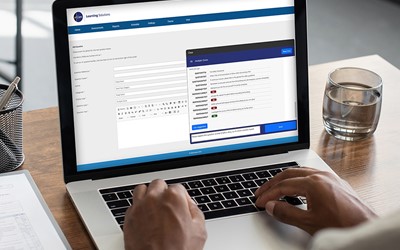Home / Blog / How can I leverage digital learning solutions to meet compliance and regulatory requirements?
How can I leverage digital learning solutions to meet compliance and regulatory requirements?
Ensuring compliance with regulatory requirements is a critical challenge for organisations across industries. Non-compliance can lead to financial penalties, reputational damage, and operational disruptions.
Digital learning solutions offer an effective way to tackle these challenges while maintaining workforce competence and confidence. Here’s how you can make the most of these tools to meet compliance goals.
Posted 6 June 2024
1. Centralize compliance training
One of the most significant advantages of digital learning solutions is the ability to centralise training content. Instead of relying on scattered resources like physical documents, email attachments, or standalone software, organisations can consolidate compliance training into a single, secure platform. This not only makes it easier for employees to access mandatory courses but also ensures version control, so only the most current and accurate information is available.
Centralised platforms allow for consistent delivery across departments and locations, ensuring all employees receive the same high-quality training. For organisations with distributed workforces, this can be a game-changer. Additionally, centralised training systems often include features like reminders and notifications to ensure employees complete their training on time, reducing the administrative burden on HR or compliance teams.
2. Automate training updates and tracking
Staying on top of regulatory updates can be a logistical nightmare, especially for organisations operating in industries like finance, healthcare, or manufacturing, where regulations frequently change. Digital learning solutions simplify this process by allowing administrators to update training materials instantly. This ensures that employees always have access to the most up-to-date information without requiring lengthy rollouts or reprints of physical materials.
Beyond updates, digital platforms often come with built-in tracking and reporting tools. These features automate the monitoring of employee progress, flagging individuals who are falling behind or identifying gaps in compliance training. During audits, organisations can generate detailed reports that demonstrate adherence to training requirements, saving valuable time and minimising stress.
3. Personalise training for maximum impact
Compliance training often has a reputation for being boring or irrelevant, which can lead to disengagement. Digital learning solutions counter this by offering personalisation features that adapt training content to the specific needs of individual employees or teams. For example, an employee in a high-risk role may need in-depth training on data protection laws, while someone in a low-risk role might only require an overview. Personalised learning paths ensure everyone receives the information most relevant to their responsibilities.
Interactive elements such as quizzes, case studies, and scenario-based learning can further boost engagement. By tailoring content to the learners’ roles and incorporating practical applications, organisations can transform compliance training from a checkbox exercise into a valuable educational experience.
4. Enhance accessibility and flexibility
Traditional compliance training methods, such as classroom sessions or workshops, can be time-consuming and difficult to coordinate. Employees often need to step away from their roles, leading to disruptions in productivity. Digital learning solutions eliminate these challenges by allowing employees to access training anytime, anywhere. Whether they’re working remotely, travelling, or in the office, employees can complete their training on a schedule that suits them.
Moreover, these solutions are often device-agnostic, meaning employees can complete courses on their smartphones, tablets, or laptops. This flexibility not only improves participation rates but also helps organisations meet compliance deadlines more efficiently, without compromising day-to-day operations.
5. Support global compliance needs
For multinational organisations, compliance is not a one-size-fits-all scenario. Different countries and regions often have their own regulatory frameworks, which can make training complex. Digital learning solutions provide the ability to customise content for specific regulatory requirements, languages, and cultural nuances. This ensures employees receive training that is relevant to their jurisdiction, reducing the risk of non-compliance due to misunderstandings or generalised content.
Additionally, global platforms can consolidate data across regions, providing centralised oversight while allowing for localised execution. This is particularly useful for senior management or compliance officers who need to monitor training completion rates and compliance status across various locations.
Solutions from eCom Learning Solutions
At eCom Learning Solutions, we specialise in delivering tailored digital learning solutions to help organisations meet their compliance and regulatory obligations. Our tools include:
- eNetLearn: A scalable Learning Management System (LMS) that simplifies the delivery, tracking, and evaluation of compliance training.
- eNetAssess: A flexible online assessment platform for designing, delivering, and managing online exams and assessments where integrity and security are paramount.
- eNetEnterprise: A solution designed to manage workforce competencies and ensure compliance standards are met across the entire organisation.
By leveraging eCom’s expertise, you can streamline your training processes, keep employees engaged, and stay confidently compliant. Contact us today to learn how our digital learning solutions can support your compliance journey.
Recent Posts
eCom Learning Solutions: Staying ahead in a constantly evolving landscapeIs your work changing, or just your tools? A question for the modern workforce
What is competency? And why it matters in the workplace
Bridging the integrity gap: A proactive approach with eNetEnterprise
Proving Learning Works: Trends Driving Workplace Training in 2025



